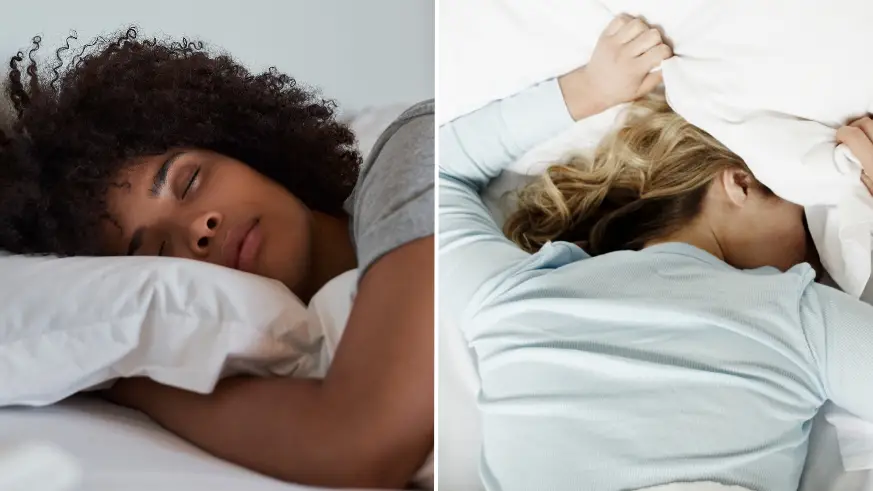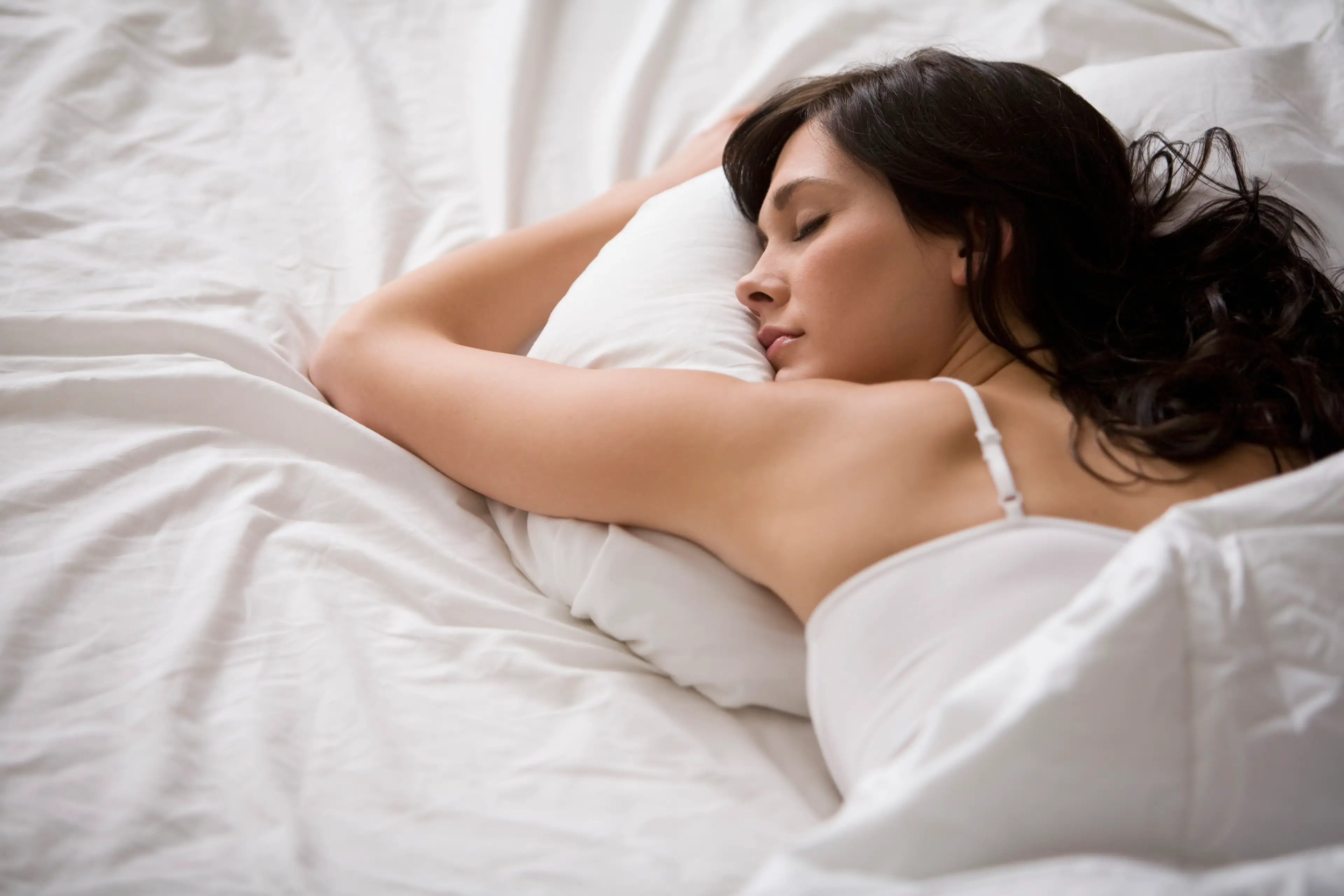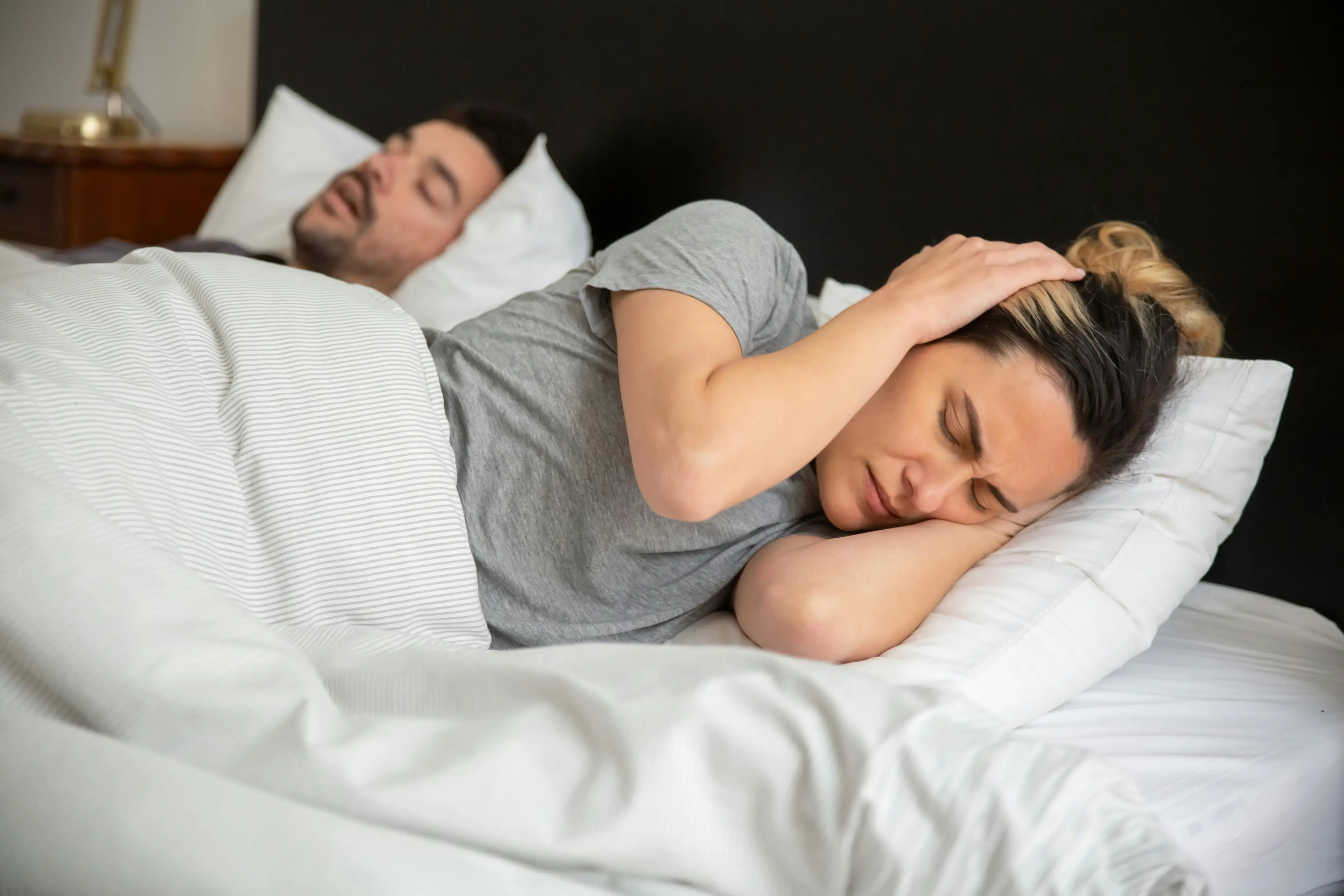
When it comes to having a good night’s rest, we’ve all got our own rituals.
Whether we’re adopting the military sleep method, researching the viral sleepy girl mocktail, or trying out the 4-7-8 hack, we’re all in the market for a better night’s sleep.
But what do we do when our life-long habits may be having a negative effect on our quality of sleep?
Personally, I have always slept face-down, opting for an arm under my pillow.
Advert
If you’re like me, it might be time to reconsider - as experts have warned this could be having a seriously detrimental effect on our precious night’s rest, and it might be time to consider a different position.

The six main sleep positions
- Foetus: Curled up into a ball on your side
- Log: Arms and legs extended on your side
- Yearner: Arms stretched out in front and legs extended on your side
- Soldier: Arms by your sides while lying on your back
- Starfish: Arms stretched above your head while lying on your back
- Freefaller: On your stomach with your head to one side and arms wrapped around the pillow

So, calling all fellow freefaller sleepers... while we may think it’s the comfiest or best position for us, it’s probably the worst.
Sleep expert Lisa Artis told the MailOnline: "It's fine to sleep on your back or sides but we suggest avoiding sleeping on your tummy as it puts a lot of strain on your neck as it is permanently twisted throughout the night."
If you’ve been waking up feeling achey, it seems you’ve got your answer.
However, if you're a lifelong stomach sleeper, and you can't imagine switching it up, all hope is not lost.
Advice in Healthline has listed some ways to avoid complications.
Tips for sleeping on your stomach
- Try using no pillow at all, or, if you need to, use a thin pillow as this will put less pressure on your neck.
- Place a pillow underneath your pelvis to help keep your back in a more neutral position and reduce pressure off your spine.
- Have a good ol' stretch when you wake up. According to Healthline, 'a few minutes of stretching will help get your body back in alignment and gently strengthen supporting muscles'.

Martin Seeley, a sleep expert at MattressNextDay, agreed with Lisa.
He said that sleeping on your front is a bad idea - but sleeping on your back isn't a great idea either.
As it turns out, if you snore, sleeping on your back will only exacerbate this problem.
Martin surmised: "Sleeping on your side is regarded as the best position. It can help improve circulation and digestion, and also opens the airways for easier breathing which means less chance of snoring."
The importance of a good bed
Lisa also emphasised the importance of sleeping on a good bed.
She said: “A good bed can make all the difference to your sleep.
“Did you know that your head weighs 4.5-5.5 kilos (10-12lbs), and that your neck contains seven of the spine's 33 vertebrae?
“Neck pain, stiff necks and even persistent headaches could simply be the result of poor pillow support while in bed sleeping.
“A good pillow should hold your head in the correct alignment - that is, in the same relation to your shoulders and spine as if you were standing upright with the correct posture.
“One that is too soft will allow the head to flop, curving the neck. One that is too hard will give you a crick in the neck.”
Noted. Off we go to look at bed frames and practice sleeping on our sides.